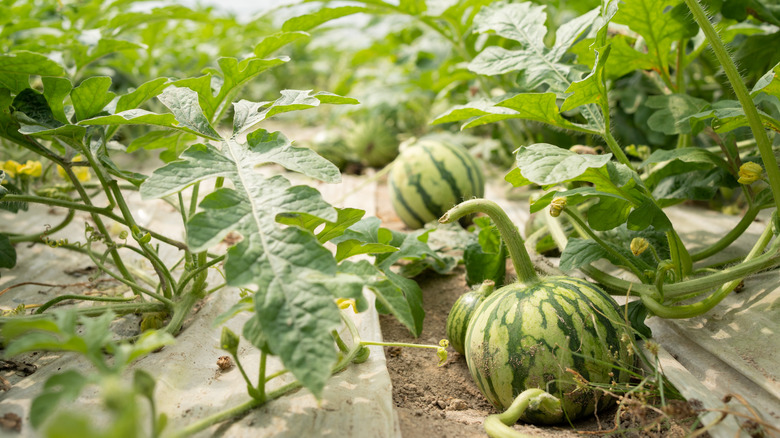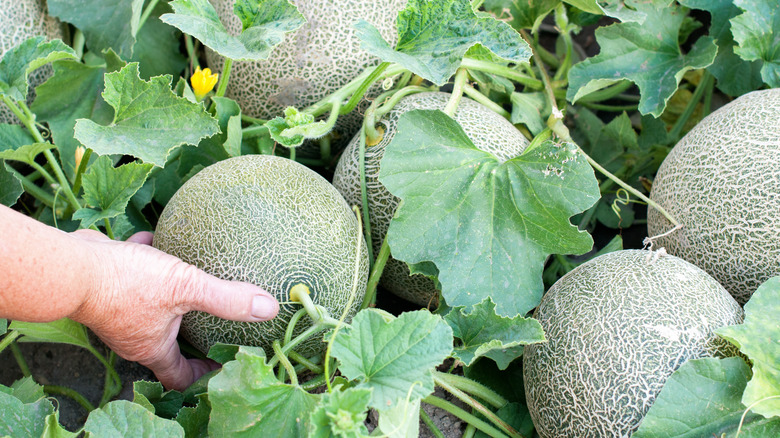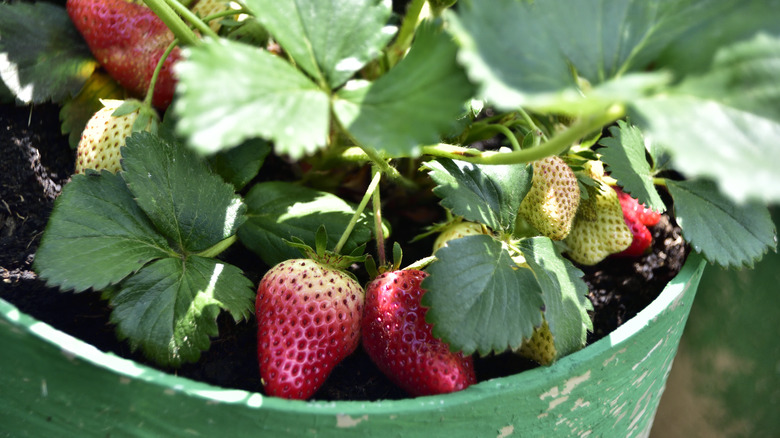Why You Should Think Twice Before Growing Melons Next Year
We may receive a commission on purchases made from links.
Embarking on the cultivation of melons can be a tempting pursuit for gardeners seeking a delicious homegrown harvest, but it comes with its share of warnings. The Royal Horticultural Society states that melons demand a considerable investment of time and attention beyond climate considerations. These plants are notorious for their sensitivity to soil conditions, requiring well-drained and nutrient-rich earth for optimal growth. Moreover, melon cultivation involves intricate pollination dynamics, with some varieties relying on specific pollinators. This complexity can be overwhelming for beginners who may not grasp the intricacies of pollination management. Furthermore, melons are water-thirsty crops, necessitating consistent and careful irrigation, which can pose challenges for gardeners with unreliable watering habits. While the allure of fresh melons is undeniable, prospective cultivators should approach with caution, considering the nuances of soil, pollination, and water management that go beyond the more commonly discussed challenges.
For example, the University of Minnesota says that melons like watermelon and cantaloupe are notably fickle due to their sensitivity to fluctuations in humidity levels. They thrive in warm, low-humidity conditions, but excess moisture in the air can lead to issues such as fungal diseases and poor fruit development. Maintaining the delicate balance of humidity becomes a crucial aspect of successful cultivation. Novice gardeners may find it tricky to navigate this specific requirement, making watermelon and cantaloupe cultivation more demanding than other crops that are less affected by atmospheric moisture variations.
Why melons are so difficult to grow
Growing melons in your garden can be challenging due to several factors that make them less suitable for beginner gardeners or individuals with limited time and resources. One significant difficulty stems from the melon's sensitivity to environmental conditions, particularly temperature. The Old Farmer's Almanac claims melons thrive in warm climates, requiring consistently high temperatures for successful germination, growth, and fruit development. Sudden fluctuations or prolonged periods of cold weather can stunt their growth, leading to poor yields. This sensitivity to temperature fluctuations makes melons a challenging crop for those without the means to control or adapt to changing weather conditions, making them less forgiving for beginners.
Another challenge in cultivating melons lies in their susceptibility to certain pests and diseases. Melon plants are vulnerable to various pests, including aphids, mites, and cucumber beetles, which can damage the plants and reduce fruit quality. Additionally, diseases such as powdery mildew and bacterial wilt can quickly spread among melon crops, further complicating their cultivation. Managing these pests and diseases requires vigilant monitoring and timely intervention, demanding a level of expertise and commitment that may be daunting for inexperienced or time-constrained gardeners.
Finally, melons are notorious for their space and resource requirements. These plants often have extensive vines that sprawl across the garden, demanding ample space for proper growth and development. Moreover, melons typically require consistent watering and nutrient-rich soil to produce optimal yields. Consequently, meeting these space and resource demands can be challenging for beginners.
Easier to grow crops for your garden
One classically accessible and rewarding crop for beginners is the tomato. Southern Living finds tomatoes are well-suited for novice gardeners due to their adaptability and relatively low maintenance requirements. They can be grown in various climates and soil types, making them forgiving to diverse environmental conditions. Tomatoes also have a relatively short growing season, producing fruit within a few months, providing quicker gratification for gardeners. Therefore, tomatoes are an excellent choice for those seeking a satisfying and manageable gardening experience.
Another beginner-friendly crop is the zucchini. MasterClass praises zucchini plants for their prolific nature and fast growth, making them an ideal choice for those with limited time and space. These plants typically produce an abundance of fruit, and their compact size allows them to thrive in smaller gardens or containers. With a short time to harvest, zucchinis offer a quick and rewarding experience for novice gardeners, offering a practical alternative to growing melons.
Finally, strawberries are another excellent choice for beginner gardeners. These small, sweet berries are well-suited for various growing conditions, thriving in both garden beds and containers. One advantage of growing strawberries is their perennial nature, with plants producing fruit for multiple years. Additionally, their shallow root systems make them adaptable to various soil types. The compact size of strawberry plants allows for efficient use of space, making them suitable for small gardens or even hanging baskets, making them an attractive alternative to the difficulties of cultivating melons.


